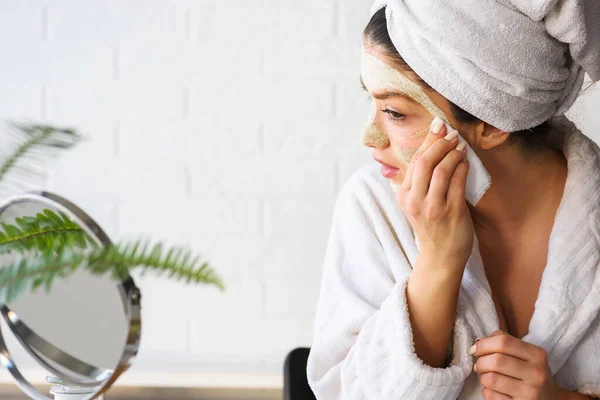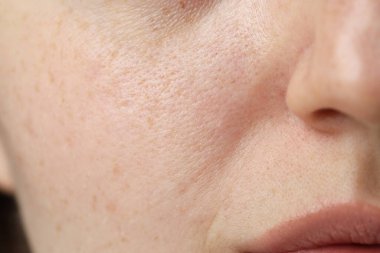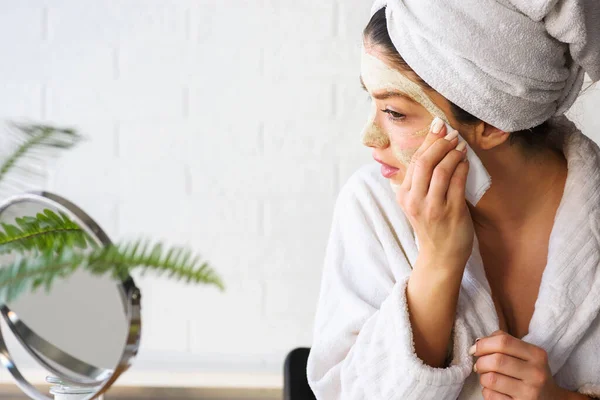
Why Is My Face Itchy After Skincare
If your face feels itchy after applying skincare products, it could be due to several reasons. Irritation from ingredients, allergic reactions, or even improper use of products can trigger itchiness.
Identifying the cause is essential for preventing discomfort and maintaining healthy skin. It’s important to carefully review the products you’re using and understand your skin’s sensitivity.
Common Causes of Itchiness After Skincare
One of the most common reasons for facial itchiness after applying skincare products is irritation caused by active ingredients. Strong ingredients like retinoids, vitamin C, or alpha hydroxy acids (AHAs) can be harsh on sensitive skin.
When these ingredients are applied in high concentrations, they may disrupt the skin’s barrier, causing itchiness and discomfort. Even if a product is meant to improve your skin, its effectiveness can be compromised if it leads to irritation.
For individuals with sensitive skin, starting with lower concentrations or patch testing new products can help avoid adverse reactions.
Allergic Reactions and Sensitivities
Another common reason for facial itching is an allergic reaction. Many skincare products contain preservatives, fragrances, or artificial dyes, which can trigger allergic responses in some individuals. When the immune system reacts to these allergens, it releases histamines, which cause itching and inflammation.
People with a history of allergies or highly sensitive skin are more likely to experience these reactions. Identifying which ingredient is causing the allergic response can be challenging, but avoiding heavily fragranced products and those with unnecessary additives can reduce the risk.
Over-Exfoliation and Skin Barrier Damage
Over-exfoliating your skin can lead to itchiness, as well. When you exfoliate too frequently or use products with strong exfoliating agents like AHAs or BHAs, you risk damaging your skin’s natural barrier. The skin barrier is responsible for protecting your skin from environmental aggressors and keeping moisture in.
When it’s compromised, your skin becomes more vulnerable to irritation, leading to itching and dryness. To prevent this, limit exfoliation to a couple of times per week and choose gentle exfoliants, especially if you have sensitive skin.
Incorrect Product Application or Layering
Sometimes, itchiness after skincare can result from applying products in the wrong order or combining ingredients that shouldn’t be mixed. For example, using retinoids and AHAs together can cause excessive dryness and irritation, leading to itching.
The incorrect layering of oil based and water-based products can also prevent proper absorption, making the skin feel tight and itchy. Following a proper skincare routine, which includes applying products from thinnest to thickest consistency, and giving each product time to absorb, can help avoid these issues.
Skin Conditions and Pre-existing Sensitivities
Underlying skin conditions like eczema, rosacea, or psoriasis can make your skin more prone to itching after using skincare products. These conditions weaken the skin barrier, making it difficult for the skin to tolerate certain ingredients.
For those with chronic skin conditions, even mild products can trigger a flare up. It’s essential to consult a dermatologist to develop a skincare routine tailored to your skin’s specific needs, focusing on hydrating and calming ingredients that help restore the skin barrier.
Environmental Triggers
Sometimes, your skincare routine isn’t to blame for the itchiness environmental factors like temperature changes, pollution, or sun exposure can also play a role.
For example, after applying a product, exposure to extreme heat or cold can irritate the skin. Sun exposure after using products with ingredients like retinoids or AHAs can also make the skin more sensitive, leading to itchiness and discomfort.
Protecting your skin with sunscreen and limiting environmental exposure can prevent these reactions.

Common Causes of Itchiness After Skincare
Itchiness after using skincare products is a common issue. Various factors like allergic reactions, irritants, and improper product use can lead to this discomfort. Understanding the causes can help prevent and treat the itch effectively.
Allergic Reactions
Allergic contact dermatitis occurs when the skin reacts to allergens in skincare products. Common ingredients like fragrances, preservatives, and essential oils often trigger allergies.
Symptoms include redness, swelling, hives, and itching. Patch testing new products can help avoid these reactions by identifying potential allergens before applying them to larger skin areas.
Irritant Reactions
Irritant contact dermatitis happens when ingredients damage the skin’s surface. Harsh components like acids, retinoids, and alcohols can irritate sensitive skin. Unlike allergic reactions, irritant reactions don’t involve the immune system. Redness, dryness, and itching are common signs. Differentiating between an allergy and an irritant reaction is key to proper skincare.
Skin Sensitivity or Barrier Dysfunction
Sensitive skin is more prone to itchiness, especially when the skin barrier is compromised. The skin barrier protects against irritants and moisture loss.
Over exfoliating or using too many active ingredients can disrupt the barrier, leading to increased sensitivity and itchiness. Dehydration and dry skin also worsen this issue, making it vital to use hydrating products.
Incorrect Product Usage
Using too many skincare products can overload the skin, causing irritation. Combining incompatible ingredients like retinoids with AHAs or BHAs may worsen skin sensitivity.
Applying products too frequently or in the wrong order can lead to over-exfoliation, redness, and itchiness. A simple routine with compatible ingredients reduces the risk of irritation.
Environmental Factors
Environmental changes can cause itchiness after skincare. Cold, dry weather often leads to dry, itchy skin, while indoor heating and air conditioning reduce moisture levels.
Exposure to pollution or allergens can further aggravate the skin, leading to increased discomfort after applying skincare products. Adapting your routine to seasonal changes helps prevent these issues.
Incorporating proper skincare habits, such as patch testing, hydrating, and adjusting to environmental conditions, can reduce itchiness and irritation.
Identifying the Cause of Itchiness
A common issue many people face with skincare is unexplained itchiness. Pinpointing the cause is essential for healthy, comfortable skin. Here are some key steps to help you identify what’s causing the problem.
Track New Products
It’s important to track when new skincare products are introduced into your routine. This helps identify any changes that may trigger skin reactions. Always introduce new products gradually.
Use one product at a time for a week or more before adding another. This way, you can monitor how your skin responds to each new item. If irritation or itching occurs, it’s easier to pinpoint the culprit.
Check Ingredients
Carefully reading ingredient lists can help you avoid potential irritants. Some ingredients, like alcohol, fragrance, and harsh acids, are known to cause skin sensitivity.
If you have sensitive skin, steer clear of these common irritants. Look for hypoallergenic and fragrance-free products to minimize the risk of a reaction. Knowing which ingredients work for your skin is key to avoiding itchiness.
Patch Testing
Performing a patch test is an effective way to prevent allergic reactions. Here’s how to do it: apply a small amount of the product to a discreet area, like behind your ear or on your wrist.
Wait 24-48 hours to see if any redness, swelling, or itchiness develops. Patch testing is crucial for those with sensitive or reactive skin. It helps prevent irritation and ensures the product is safe to use on your face.
How to Soothe Itchy Skin After Skincare
Stop Using Potential Irritants
Immediately stop using any skincare products that cause irritation or allergic reactions. Identify which products might be the cause and avoid them. Gradually reintroduce products one at a time after your skin heals to pinpoint any further triggers. This cautious approach helps in managing and understanding your skin’s sensitivity.
Apply Gentle, Soothing Products
Use products with soothing ingredients like aloevera, colloidal oatmeal, or centella asiatica. These ingredients help calm irritated skin and reduce redness. Opt for fragrance-free and hypoallergenic options to minimize the risk of further irritation. Gentle, soothing products provide relief without adding to the discomfort.
Use a Barrier Repair Cream
Barrier repair creams, which contain ceramides and fatty acids, are crucial for restoring the skin’s protective layer. These creams help to repair the skin barrier, preventing moisture loss and reducing sensitivity. Apply the cream gently to avoid further irritation, focusing on areas affected by irritation.
Cold Compress
Applying a cold compress can soothe itching and decrease inflammation. Use a clean cloth soaked in cold water and apply it to the affected area for 10-15 minutes. This method provides immediate relief and helps in reducing redness and swelling.
Avoid Scratching
Resist the urge to scratch itchy skin, as this can worsen irritation and lead to potential infections. Scratching can damage the skin and exacerbate the problem. Instead, use soothing methods to alleviate the itchiness and keep the skin intact and healthy.
Preventing Itchiness in the Future
Choose Products for Your Skin Type
Selecting products designed for sensitive skin is crucial. Opt for formulations that cater specifically to your skin’s unique needs. Using products meant for sensitive skin can help prevent irritation and discomfort. Tailoring your skincare routine to address your skin’s specific characteristics reduces the risk of itchiness.
Introduce Active Ingredients Slowly
Gradually incorporating strong actives, like retinoids and AHAs, helps minimize irritation. The “low and slow” approach involves starting with lower concentrations and increasing them gradually.
This method allows your skin to adjust and reduces the likelihood of adverse reactions. Slowly introducing potent ingredients ensures a smoother adaptation.
Maintain a Simple Skincare Routine
A minimalist skincare routine can significantly cut down on irritation risk. Focus on gentle cleansing, adequate hydration, and barrier repair.
By simplifying your routine, you avoid overloading your skin with multiple products that could lead to sensitivity. A straightforward approach helps maintain skin balance and reduces potential itchiness.
Moisturize Regularly
Regular moisturizing is essential for keeping skin hydrated and maintaining a healthy barrier. Choose a moisturizer that suits sensitive or reactive skin. A good moisturizer helps prevent dryness and protects the skin from irritants. Consistent hydration supports skin resilience and minimizes the chances of developing itchy patches.
When to Seek Professional Help
Severe or Persistent Itchiness
Severe or persistent itchiness may signal a more serious condition. If you experience intense, ongoing itching, it could be due to eczema, rosacea, or fungal infections.
These symptoms often require specialized treatment beyond over the counter options. Dermatologists are crucial for diagnosing and managing these conditions. Consulting a dermatologist is essential if standard remedies aren’t effective. They can identify the root cause and prescribe targeted treatments.
Personalized Skincare Recommendations
Seeking professional help offers tailored skincare solutions. Dermatologists provide personalized skincare recommendations based on your unique needs.
They can perform allergy tests to identify irritants. Additionally, they may suggest prescription treatments that are more effective than over the counter products. Personalized advice ensures you receive the most appropriate care for your skin’s condition and needs.

FAQs
Why does my face feel itchy after applying skincare products?
Itchiness after using skincare products can be caused by various factors, such as allergic reactions, skin sensitivities, or using products with harsh ingredients like fragrances or alcohol. Patch testing new products can help identify if a specific ingredient is causing irritation.
Could my skin be allergic to certain skincare ingredients?
Yes, allergic reactions to skincare ingredients are common. Ingredients like artificial fragrances, essential oils, preservatives, and harsh chemicals can trigger an immune response, leading to itching, redness, or swelling. It’s important to check product labels and consult a dermatologist if you suspect an allergy.
How can I prevent my face from itching after using skincare?
To prevent itching, opt for gentle, fragrance-free products formulated for sensitive skin. Patch test new products on a small area of skin before full application. Avoid layering too many active ingredients like retinoids and acids, as they can overstimulate the skin.
Can over exfoliation cause my face to itch?
Yes, over exfoliating your skin can strip its natural barrier, leading to dryness, irritation, and itchiness. It’s essential to use exfoliating products in moderation and follow with hydrating, barrier-repairing moisturizers to soothe the skin.
Why does my face feel itchy after using anti-aging products?
Many anti-aging products contain active ingredients like retinoids and alpha-hydroxy acids (AHAs), which can cause dryness, peeling, and itchiness as they work to increase cell turnover. Gradually introducing these products into your routine can help minimize discomfort.
Can itchy skin be a sign of an underlying skin condition?
Yes, itchy skin can be a symptom of conditions such as eczema, rosacea, or contact dermatitis. If your itching persists or is accompanied by other symptoms like redness, swelling, or rash, it’s best to seek advice from a dermatologist.
Should I stop using skincare products if my face becomes itchy?
If your face becomes itchy after using a product, discontinue use immediately and observe how your skin responds. If the itching subsides, it may be a sign of irritation from that specific product. Consulting with a dermatologist will help identify the best course of action.
Are natural skincare products less likely to cause itching?
Not necessarily. While natural skincare products may seem gentler, they can still contain ingredients like essential oils or botanicals that may irritate sensitive skin. Always check the ingredient list and do a patch test before incorporating any new product into your routine.
Can dehydration be the reason my face feels itchy after skincare?
Yes, dehydrated skin is more prone to irritation and itching. Ensure your skincare routine includes hydrating products like hyaluronic acid and ceramides, and drink plenty of water to keep your skin balanced and healthy.
When should I see a dermatologist for my itchy skin?
If your itching is persistent, severe, or accompanied by other symptoms like rashes or swelling, it’s time to see a dermatologist. They can diagnose any underlying skin conditions and recommend appropriate treatments to soothe your skin.
Conclusion
Experiencing itchiness after applying skincare can be caused by a variety of factors, including allergic reactions, irritation from strong ingredients, or sensitivity to fragrances.
Your skin’s natural barrier may be compromised, making it more prone to irritation, especially if you’re using new or harsh products. It’s important to patch test new items and choose gentle, fragrance free options tailored for sensitive skin.
If the issue persists, consulting a dermatologist can help identify the root cause and guide you toward a routine that soothes rather than aggravates your skin.
